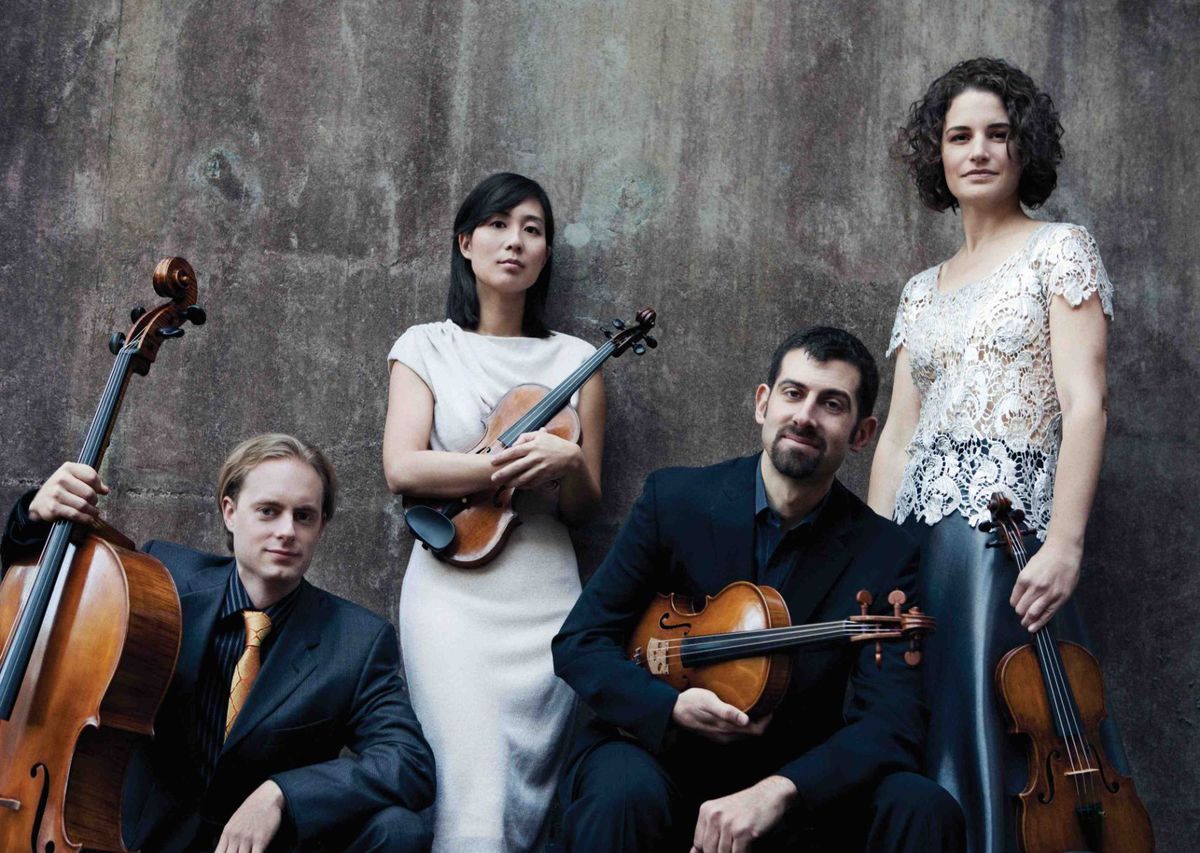‘We can play Bartok blindfold’
mainA pushy father once presented his violin-playing kid to Jascha Heifetz boasting, ‘he’s so good, he knows the Beethoven concerto backwards.’
Heifetz glared at the kid. ‘So play backwards,’ he growled.
The Chiara String Quartet are making a thing in the NY Times and elsewhere about having recorded the six Bartok quartets from memory, without looking at a score.
Next time they come round, maybe let’s not look at the stage.






First of all, the link takes me to a newspaper in Lincoln, Nebraska that requires me to fill out a questionnaire about automobiles before I read the article.
Second, playing by heart and playing backwards don’t seem to me to be quite the same thing. The Chiara String Quartet, whom I have never heard perform, appear to make a point of playing without scores in front of them, and not only in Bartok, feeling that they do things better that way, and they seem to have garnered pretty good reviews over the years.Do you have reason to think that they perform Bartok and others badly as a result of playing without scores? Perhaps I’ve missed the point of your suggesting that we not look at the stage the next time they come to town. At least they don’t make a point of playing all six quartets in one evening.
I heard Chiara do this live @ the Met Museum last season. While not an advocate of this sort of thing, I was both impressed they got through Bartok without breaking down and scared that they would.
That said, I’d rather hear Emerson or Escher play with music.
“Not looking at the stage” is a joke, People! Playing without parts can provide a certain tension in the performance, or at least in the audience, which may be welcome. If chamber music is akin to a conversation, the illusion is sustained. Conducting without a score is a different matter. The absence of a score can connote that the conductor is supposed to be the source, not the conduit of the composer’s work of art. [I don’t intend to get into the old conundrum of whether the composition exists on the page or in the air, non-existent without the conductor . . . ] The practical matter is that Osmo Vanska says he always uses a score in case a player loses count and needs a cue to help to find his way back. Out-of-synch performing does not work well with music learned by rote.
Let them play.
We wouldn’t scoff if a theater troupe performed a complicated stage classic without the scripts in front of them. We would expect it.
Quartetto Italiano played from memory, and were an extraordinary group.
Yes, but when this group does it, it’s a cheap gimmick. Makes perfect sense, apparently.
If one cannot learn a piece by heart (and not by “rote” only), why even play. And why not admit some interpretation? Afraid of sounding different? Does anyone perform jazz with a score? Having all music scored or performed with a score appears traditionally correct, but is it really necessary?
Pianists play by memory all the time; it’s simply assumed. Likewise, it seems to me that the amount of rehearsing any full-time string quartet puts into serious works could lead to memorized performances, if desired. So far, though, audiences haven’t insisted and the present instance seems a bit gimmicky.
If anyone is at the Ravinia Festival next week, you can hear the Chiara perform the Bartok Quartets on September 7 and 8, fyi!
Good for them, but that’s nothing new; the Kolisch Quartet was doing that decades ago when they were premiering the Schoenberg and Bartok quartets.
Before one judges, one should simply listen to the quartet’s performance. I’m astounded at how judgmental people are absent of any real knowledge of the quality of their work.
Having heard the Chiara Quartet’s performance AND having heard them intelligently and sincerely discuss their intentions, this listener was moved and impressed. These performers are working hard for both composer and listener, and are making a substantial contribution to our field.